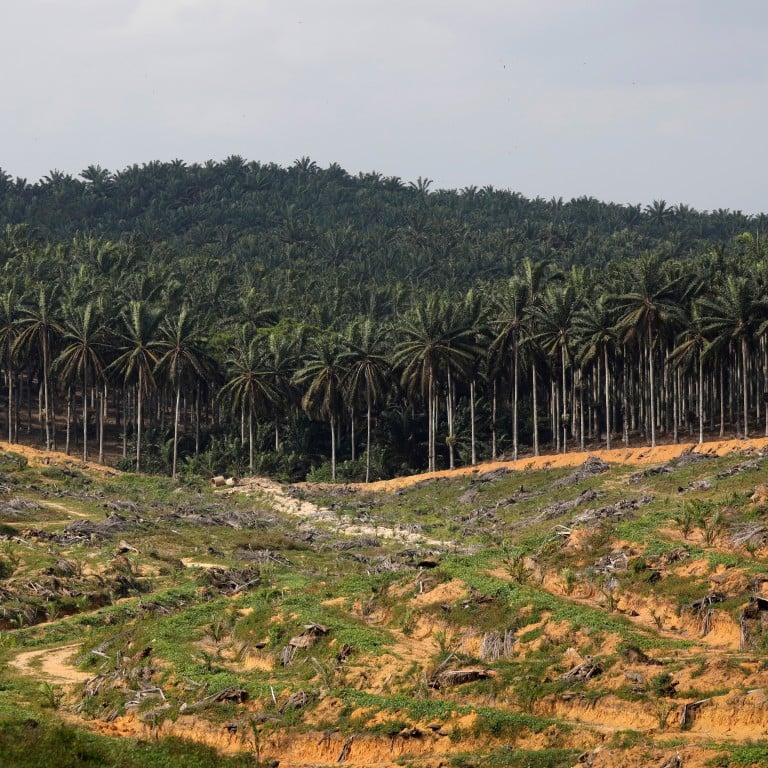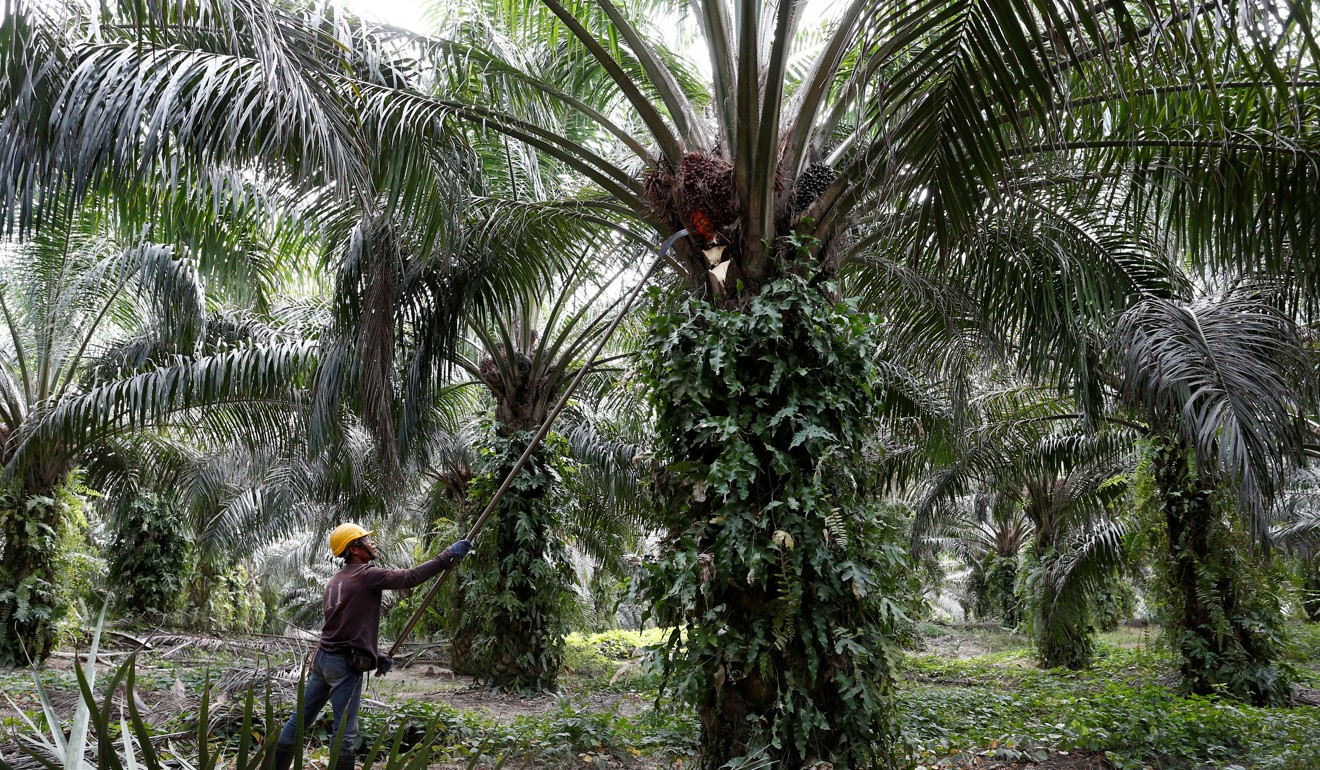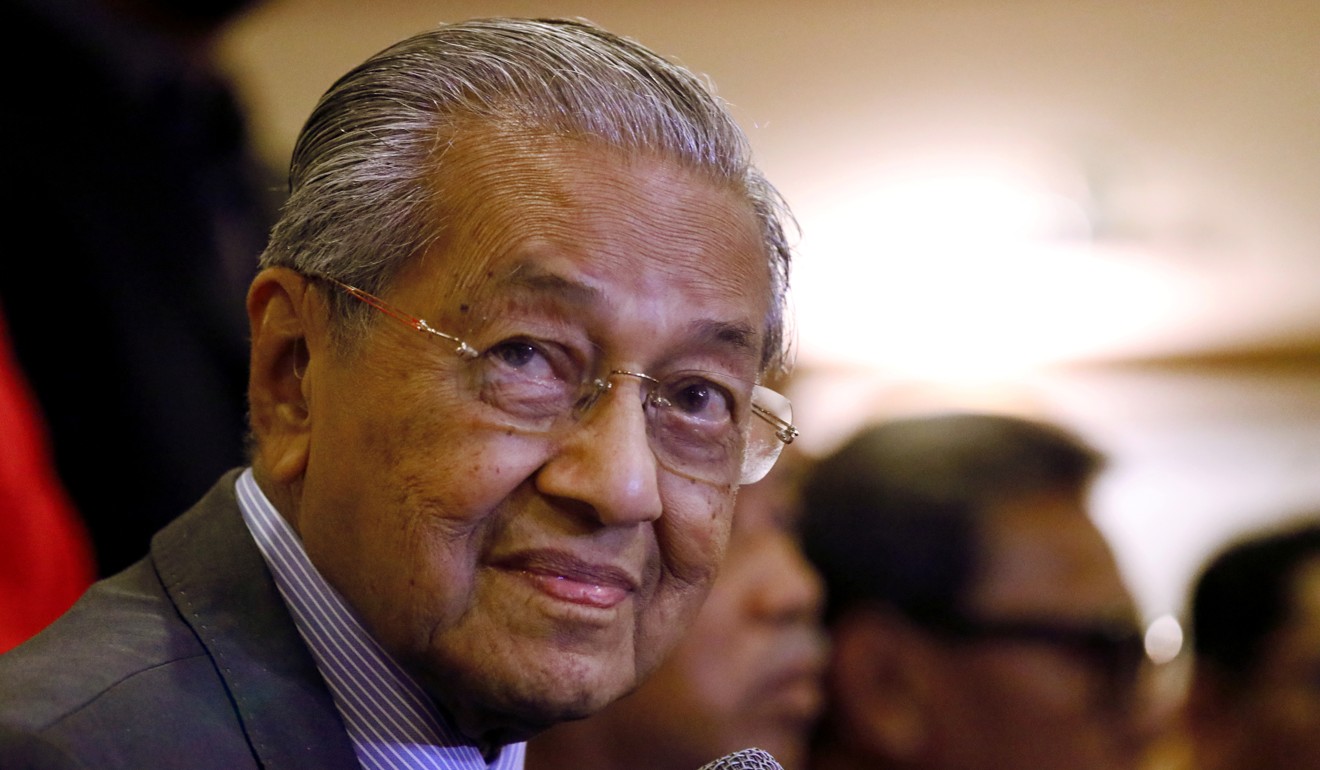
Malaysia’s Mahathir says ‘unfair’ to link palm oil production to deforestation, while Indonesia threatens to halt Airbus orders
- The Malaysian prime minister says the industry has grown responsibly, and linking it to deforestation has a negative impact on the country
- Meanwhile, Indonesia is pushing domestic airlines to halt purchase of Airbus jets to retaliate against curbs imposed by the European Union on use of palm biodiesel
Malaysia is the world’s second-biggest producer of palm oil, a widely consumed commodity used in everything from chocolate spread to lipstick. Several studies have shown that palm oil is a major contributor to deforestation, along with cattle ranching and soybean production.
The European Union passed a law earlier this year to phase out palm oil from renewable fuels by 2030 due to deforestation concerns.
“The claims linking palm oil to deforestation is baseless, unfair and unjustified,” Mahathir said at an event on Malaysian forests.
Malaysia urges post-Brexit Britain to ‘break with Europe’ on palm oil
“These claims bring negative impact to Malaysia which depends highly on the palm oil industry to raise the socio-economic well-being of our people,” he said.
Mahathir also said the palm oil industry in Malaysia has been developed sustainably and responsibly.
The world is hooked on palm oil - but is it sustainable?
Malaysia and Indonesia, the world’s largest palm oil producer, supply around 85 per cent of global palm oil, much of which is used in foods.
Environmentalists and locals have claimed deforestation continues to this day in Borneo and other parts of Malaysia.
Mahathir also said Malaysia was focused on improving productivity and yields of oil palm, rather than expanding land.
He said the government would limit oil palm cultivation at 6.55 million hectares by 2023, reaffirming an earlier target set by the minister in charge of palm oil.

Earlier this week, Reuters reported that Malaysia has launched a global public relations and lobbying effort to protect the reputation of palm oil, especially in Europe.
The campaign is centred around small holder farmers, carried out by platforms that say they represent farmers but are created or run by public relations firms hired by a government agency responsible for promoting palm oil.
Malaysia and Indonesia threaten boycott of EU products
Meanwhile in Indonesia, there are attempts to get domestic airlines to halt purchase of Airbus SE planes in retaliation for curbs imposed by the European Union on use of palm biodiesel.
Indonesia’s Trade Minister Enggartiasto Lukita is also asking carriers such as Lion Air to consider switching to Boeing aircraft instead.
Lukita had spoken to Lion’s co-founder Rusdi Kirana about dumping Airbus and the country’s largest low-cost carrier supported the government move, the minister said in a text message on Thursday.
“We are exploring all options,” Lukita said, when asked if the government would order all carriers to switch to Boeing from Airbus.
“I have contacted Rusdi, and he said the airline will follow whatever the government decides.”
Siva Govindasamy, a Singapore-based spokesman for Airbus, did not immediately respond to a request for comment.
Families of Lion Air crash victims ask why Boeing 737 MAX not grounded before Ethiopian Airlines accident
The Indonesian threat to turn its back on Airbus comes on the back of the EU’s decision earlier this year. Indonesia, the world’s largest producer of the tropical vegetable oil, last week also threatened to slap retaliatory tariffs on import of dairy products from EU after the bloc imposed anti-subsidy duties on its palm oil biodiesel.
The escalation of trade feud may complicate Lion’s plan to turn to the European manufacturer following a dispute with Boeing after the crash of its 737 Max 8 jet last year, which killed 189 people. Flag carrier Garuda Indonesia has also said that it may cancel its Boeing Max orders for other models.
Lion Air placed an order for eight Airbus A330neo planes worth US$2.4 billion at list prices last year, adding to a 2013 order for 234 planes worth US$24 billion.



